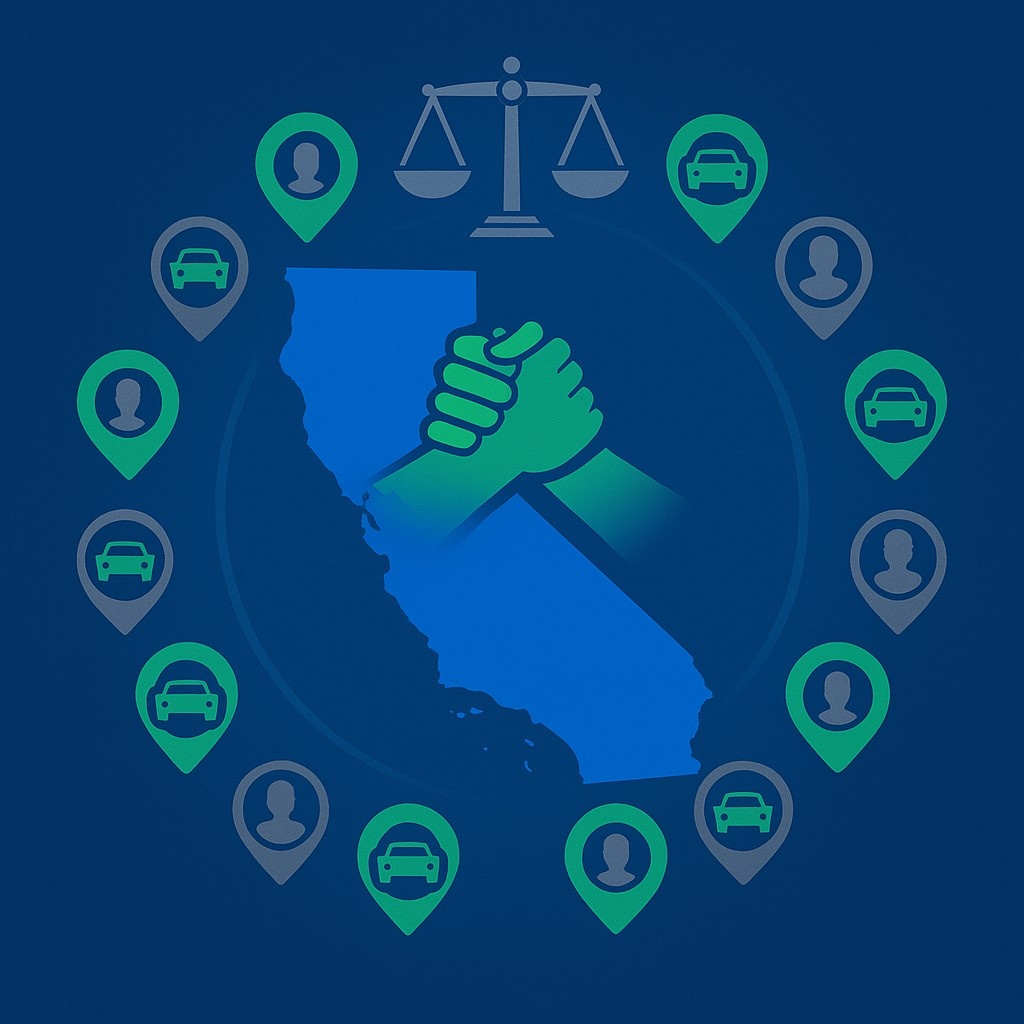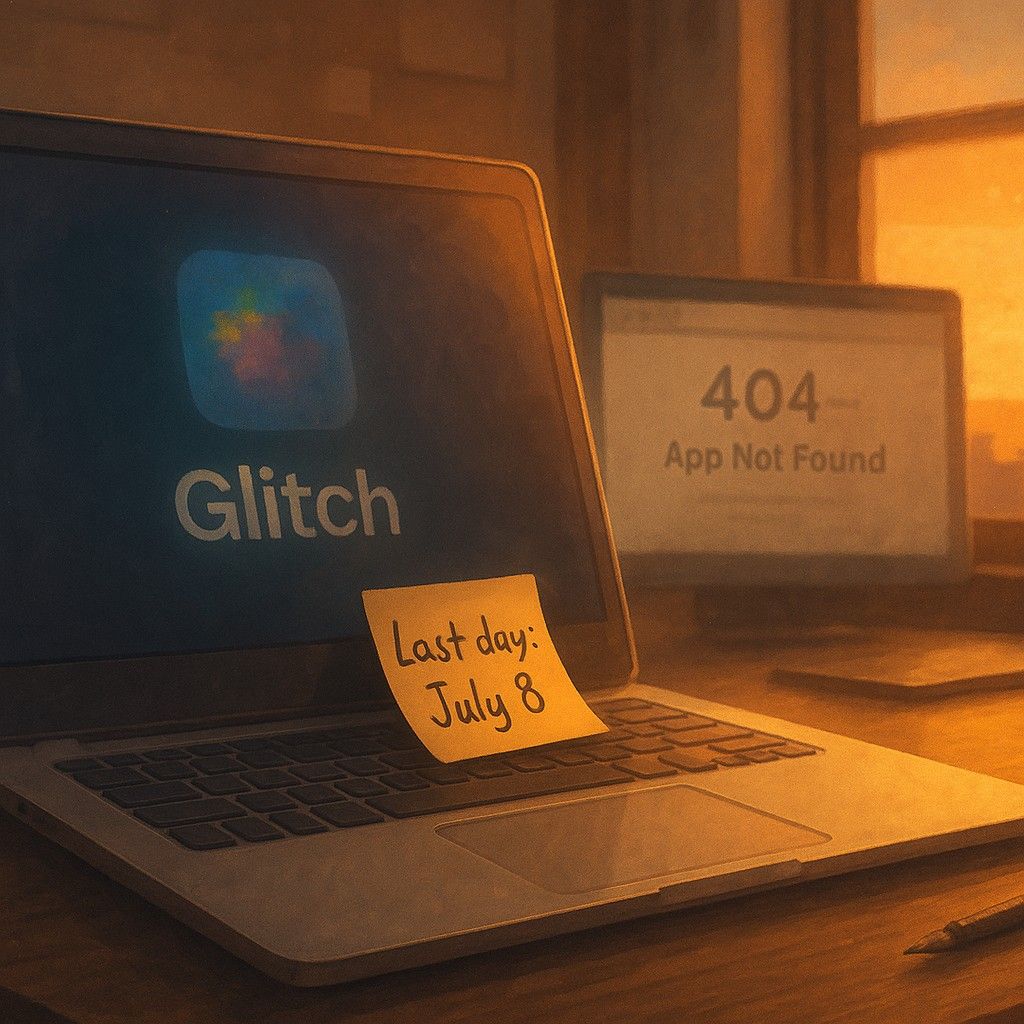California Gig Drivers Win Path to Unionization in Historic Deal
A landmark compromise allows drivers to remain contractors while gaining collective bargaining rights.
In a landmark development for the gig economy, California lawmakers, Uber, and Lyft have reached a deal that gives rideshare drivers a path to unionization while allowing them to remain independent contractors. The agreement, announced on August 29, 2025 by Governor Gavin Newsom, has been described as a “historic compromise between workers and business that only California could deliver.”
For the first time in U.S. history, hundreds of thousands of app-based drivers in California will be able to form unions and collectively bargain over pay, benefits, and working conditions, without dismantling the contractor model cemented by Proposition 22 in 2020.
The Twin-Bill Framework
The deal is built on two complementary bills moving together through the state legislature:
Assembly Bill 1340 (AB 1340)
Supported by drivers’ groups and unions, this bill creates a legal framework for rideshare drivers to organize. Drivers would elect representatives, form unions, and negotiate on issues like minimum pay, healthcare stipends, deactivation disputes, and safety protections.
Senate Bill 371 (SB 371)
Backed by Uber and Lyft, this bill reduces costly insurance mandates imposed on rideshare companies. Currently, California law requires very high commercial insurance coverage—costs that Uber and Lyft say push up fares and cut into driver pay. Lowering these requirements would cut operating expenses, giving companies more room to meet drivers’ demands while keeping rides affordable.
Together, these bills represent a balancing act: drivers gain collective power, and companies get regulatory relief.
Why This Is a Breakthrough
The background to this deal stretches back years. In 2019, California passed Assembly Bill 5 (AB 5), which aimed to classify gig workers as employees rather than contractors. Uber, Lyft, and other gig companies fiercely resisted. In 2020, they spent over $200 million on Proposition 22, a ballot measure that cemented the contractor status of drivers. Voters approved it, and courts upheld it through 2024.
But Prop 22 left drivers with few protections. They received limited benefits such as a healthcare stipend and occupational accident insurance, but they had no voice in company decisions. Pay algorithms could change overnight. Drivers could be “deactivated” (effectively fired) without due process.
For years, drivers organized protests, strikes, and campaigns demanding more rights. Their main frustration was that they had no ability to negotiate collectively. This new agreement answers that demand, giving them a seat at the bargaining table without undoing Prop 22.
What Drivers Stand to Gain
For California’s estimated 300,000 rideshare drivers, this could be a game-changer. Key gains include collective bargaining rights, improved dispute resolution for deactivations, the ability to push for stronger minimum earnings standards, and expanded access to benefits like healthcare stipends and safety measures. Many drivers are immigrants, minorities, or part-time workers juggling multiple jobs. For them, the ability to unionize is seen as a form of economic justice.
Why Companies Agreed
Uber and Lyft have fought unionization efforts for years, but this deal offers them something valuable: stability. By allowing unions under Prop 22’s framework, the companies avoid renewed political battles that could threaten the contractor model. The reduction in insurance costs lowers expenses, helping offset higher pay or benefits negotiated in the future. Compromise ensures rideshare services remain profitable while avoiding more radical legislative reforms. An Uber policy executive called the bills “two important pieces moving forward together to improve affordability for riders and rights for drivers.”
The Prop 22 Puzzle
The most delicate part of this arrangement is legal. Prop 22 enshrined the principle that drivers are not employees. Any union model must steer clear of contradicting that. The proposed framework allows drivers to bargain collectively without being reclassified. Experts call it a “sectoral bargaining” model: unions negotiate with companies on behalf of all drivers in a region, but drivers remain independent. Some labor scholars warn this could create “weaker unions” with limited powers compared to traditional employee unions. Still, it’s seen as a first-in-the-nation experiment that could shape how gig work is regulated nationwide.
Support and Criticism
Supporters say:
- Drivers finally get a voice in decisions that shape their livelihoods.
- Lower insurance costs could reduce fares for riders and raise take-home pay for drivers.
- It avoids another ballot war between companies and labor groups.
Critics argue:
- The union model may lack teeth—drivers cannot strike or fully control bargaining outcomes.
- Insurance reductions might shift risk back onto drivers if companies don’t pass savings along.
- It locks in contractor status, which some activists still see as fundamentally unfair.
The Broader Impact
If California’s model succeeds, it could inspire other states. Massachusetts recently approved limited union rights for gig workers. New York and Illinois are watching closely. For labor movements, it shows that persistent pressure pays off. Even after gig companies spent heavily to secure Prop 22, worker organizing brought them back to the negotiating table. For tech companies, it demonstrates that compromise is cheaper than conflict. By working with unions, they protect their business models while adapting to political realities.
Final Thoughts
The deal struck in California is not perfect—no compromise ever is. But it represents a historic turning point in the gig economy. For the first time, drivers can organize and negotiate without threatening the contractor model. For Uber and Lyft, it secures regulatory relief and avoids another ballot fight.
Most importantly, it sends a message: gig workers are no longer powerless.
If AB 1340 and SB 371 pass in Sacramento, California will set the nation’s first real precedent for unionized independent contractors in the rideshare industry. What happens here could reshape the future of gig work far beyond the state’s borders.










